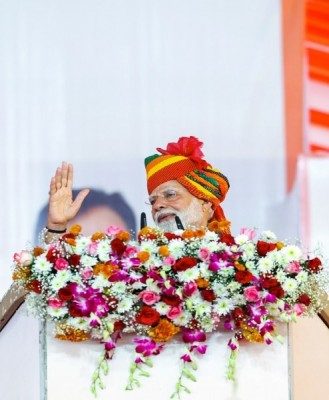"US must demonstrate larger view of India"
“The US repeatedly tells us that economic relations are only one part of the broad strategic relations between our two countries, thus implying that trade is secondary to the overall bilateral relationship," said Kanwal Sibal at a webinar organized by US India Political Action Committee (USINPAC).
"However, we often find that commercial interests of one or two U.S. companies become more important and cloud the whole relationship – thus implying that narrow business interests matter more than strategic relations. The US must demonstrate a larger view of India”, he said.
Heralded as a defining partnership of the 21st century by President Barack Obama, there is considerable speculation on how the incoming Indian government shall shape its U.S. policy.
“This speculation is mostly driven by the fact that there is growing sense in India that the current U.S. administration has dropped the ball in this relationship. A new stable government in India is the right occasion for the US to take steps to dispel this impression”, said Sanjay Puri, chairman of the US India Political Action Committee (USINPAC).
The two countries are scheduled to hold a strategic dialogue soon after the new government assumes office in Delhi, and many contentious issues are expected to be discussed threadbare. However, some experts are suggesting that the dialogue must be delayed.
“Both countries must prepare comprehensively for this dialogue, and if need be even push back the meetings towards the end of summer. The two countries must also seriously consider moving ahead on a Free Trade Agreement”, said Ashley Tellis, Senior Associate at the Carnegie Endowment for International Peace
“U.S. industry is enthused with the campaign promise of economic growth and development in a Modi-led government, and wants to recover the momentum of relationship that we had around 2005-7. Both the U.S. and India should also look at being involved in the discussions of the Trans Pacific Partnership (TPP), and India’s role in capacity building of Afghanistan’s economy, after the drawdown of US forces there”, said Alyssa Ayers, Senior Fellow at the Council on Foreign Relations.
The US India Political Action Committee (USINPAC) is the voice of over 3.2 million Indian- Americans and works on issues that concern the community.
It supports candidates for local, state and federal office and encourages political participation by the Indian- American community.
Support Our Journalism
We cannot do without you.. your contribution supports unbiased journalism
IBNS is not driven by any ism- not wokeism, not racism, not skewed secularism, not hyper right-wing or left liberal ideals, nor by any hardline religious beliefs or hyper nationalism. We want to serve you good old objective news, as they are. We do not judge or preach. We let people decide for themselves. We only try to present factual and well-sourced news.







